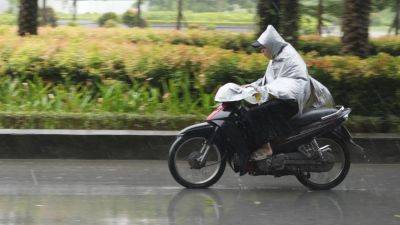A Filipino youth’s perspective on food, health, and sustainability
By HAILEY YAP
(Contributor)
THE steady beep of hospital monitors replaced the familiar rhythm of my father’s footsteps. At 47, he lay pale, awaiting heart surgery.
I was only 12, grappling with the reality I never imagined: my dad, the biker who would ride six hours from Makati to Rizal, was now tethered to machines. Just yesterday, we were laughing about late-night talk shows.
Today, I’m learning words like “angioplasty” and “coronary heart disease.”
The cold hospital glow cast a harsh spotlight on how quickly life changes. This wasn’t just my story. It’s a wake-up call to the pain echoing across countless Filipino families, exemplifying a silent crisis unfolding across the nation.
Mortality rates from non-communicable diseases such as cancer, heart disease, and diabetes are soaring, claiming 41 million lives globally each year, with a disproportionate impact on low- and middle-income countries. Even more alarming, 95 Filipino children succumb to malnutrition every day. These disparate tragedies share a common culprit: unhealthy diets.
The Filipino diet has failed on two critical fronts: individual well-being and environmental sustainability. A study by Angeles-Agdeppa and Custodio reveals that working adults in the Philippines consume barely enough calories for rest, let alone regular daily activity.
Filipino diet lacks the diversity recommended by the EAT-Lancet Commission, a group of 37 world-leading scientists that outlined scientifically-backed targets for healthy and sustainable diets (Willett). The top protein sources in the Filipino diet are rice, pork, fish, and eggs, while the EAT-Lancet Commission advocates for a more diverse diet, including nuts, legumes, poultry, and fish. Rice alone constitutes 36% of an average Filipino’s energy intake, and Filipinos consume more than twice the recommended amount of saturated fats daily. This imbalance leads to widespread nutrient deficiencies, with high animal protein consumption associated with a 23% higher risk of early death among males
The environmental consequences of our diet are equally dire. Traditional rice cultivation methods contribute significantly to methane release, accounting for approximately 10%







